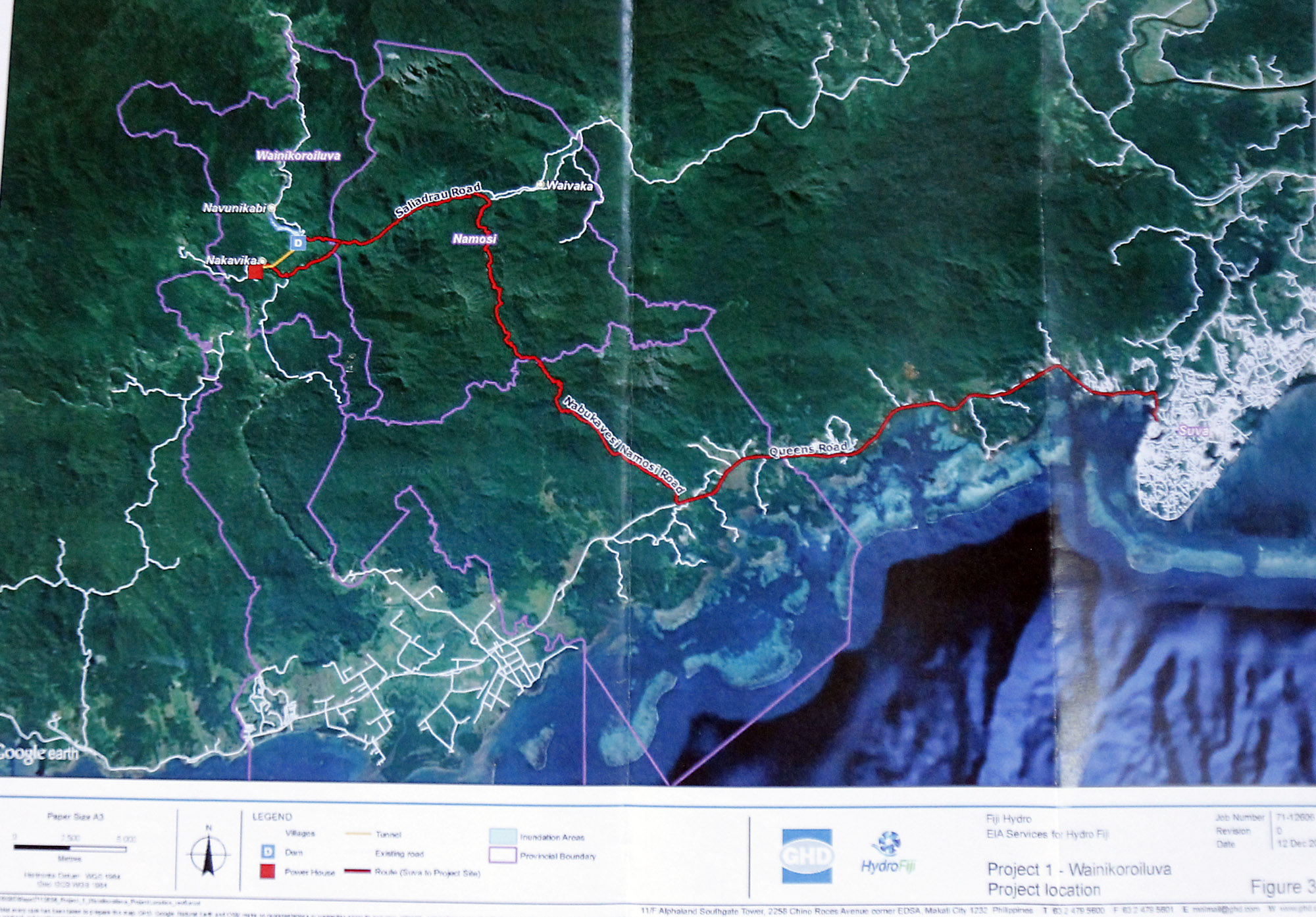VILLAGERS of Navunikabi in Namosi fear that their village will be inundated with water if the construction of the Wainikoroiluva hydro project goes ahead.
Hydro VL Pty Ltd is working on the Wainikoroiluva, Wainikovu and Waivaka hydro project.
It is estimated to cost $200million.
The proposed Wainikoroiluva hydro project is located in the district of Wainikoroiluva.
This land belongs to the mataqali (clan) Nabukebuke Navunikabi, mataqali Nasoroiwaca, mataqali Vatuvula, mataqali Nabukebuke Laselase, mataqali Tubalevu and mataqali Nabukebuke who live in Navunikabi Village and Nakavika Village.
The mataqali Nabukebuke Navunikabi is among some of those who have rejected the proposed project.
Navunikabi Village leader Nikola Rokowai said they were against the project because he claimed they were going to be the first village to be inundated with water.
“This river has helped us a lot ever since our forefathers were here,” Mr Rokowai said.
“We have our plantation across the river, we use the river for washing and for our food source. “Sometimes when there’s no water in the tap, we always use the river.”
The villagers also fear that the construction of the proposed hydro would also decrease prawn and eel stock in the Wainikoroiluva river.
Navunikabi Village elder Kositatino Matakibau said they appreciated Government’s efforts in getting developments to their villages, but they would prefer if the proposed hydro plant was to be constructed at a place further away from their village.
Meanwhile, Hydro VL Pty Ltd co-founder Dr Philip Van der Riet assured landowners at a consultation of environmental impact assessment (EIA) on the Wainikoroiluva, Wainikovu, Waivaka hydro project in Navua a week ago that none of their villages would be flooded and promised they would not get displaced or relocated.
He said it was not possible to develop a hydro project involving major civil construction in a natural location without some environmental impact and it was equally impossible to have improvements in living standards with zero impact to an existing way of life.



